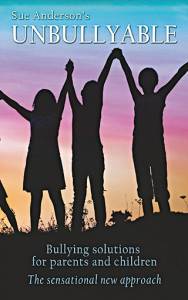Federal and state laws exist to protect potential victims and punish offenders.
Cyber-bullying is illegal, but working out what aspects are covered, and how, can be a challenge. Cyber-bullying and its related offences are covered by a range of state, territory and federal laws. Some jurisdictions have specific anti-bullying laws, while others use existing laws to prosecute cases. Regardless of whether jurisdiction has specific cyber-bullying laws, related behaviours such as stalking, making threats and physical assault are generally covered by existing state and territory legislation.
// FEDERAL LAW
ENHANCING ONLINE SAFETY FOR CHILDREN ACT 2015
Passed in early 2015, the Enhancing Online Safety for Children Act established a Children’s eSafety Commissioner, a complaints system for reporting cyber-bullying material aimed at an Australian child and a two-tiered system for rapid removal of cyber-bullying material from large social-media services.
In 2017 the role was expanded to include all Australians and under the revised Enhancing Online Safety Act 2015 is known as the Office of the eSafety Commissioner. The independent statutory office within the Australian Communications and Media Authority (ACMA) administers cyber-bullying complaints, promotes online safety, co-ordinates relevant Commonwealth department, authority and agency activities, conducts and oversees educational and community awareness programs, makes grants and advises the Communications Minister.
A person can lodge a complaint to the commissioner if they have reported the material to the specific social-media site first and did not receive an outcome. The commissioner has the power to investigate complaints into cyber-bullying and conduct investigations as he or she sees fit.
Among other things, the legislation provides for:
• Setting out the eSafety Commissioner’s functions and powers;
• A complaints system for cyber-bullying material;
• A two-tiered scheme for the rapid removal from large social-media services of cyber-bullying material;
• A mechanism for the commissioner to give end-user notices to require a person who posts cyber-bullying material to remove the material, refrain from posting further material or apologise for posting the material; and
• Enforcement mechanisms.
// SOUND ADVICE
Unbullyable by Sue Anderson can be purchased online.
Australia’s Youth-Driven Movement Against Bullying // projectrockit.com.au/about or call 0435 150 280.
Body image movie Embrace //www.youtube.com/watch?v=__2AayArYfs
Reach out // au.reachout.com
// WHO ENFORCES CYBER-BULLYING LAWS?
Many forms of cyber abuse could be considered illegal under state or federal legislation. For example, under the Commonwealth Criminal Code Act 1995 (‘the Act’) it is an offence to menace, harass or cause offence, using a ‘carriage service’.
It is also an offence under the Act to use a carriage service to make threats to kill or cause serious harm to a person, regardless of whether the person receiving the threat actually fears that the threat would be carried out.
These provisions could capture instances of menacing, harassing or offensive conduct and threats carried out using landlines, mobile phones (e.g. MMS, SMS) and the internet, including emails and social media. For example, using a mobile phone to repeatedly send offensive images to someone.
Most Australian states and territories also have laws covering stalking, blackmail, criminal defamation and various unlawful uses of technology. A number of jurisdictions have also passed laws creating offences for the threat to distribute, or distribution, of intimate images (image-based abuse).
Office of the eSafety Commissioner // esafety.gov.au
THE PROCESS FOR REPORTING CYBER-BULLYING FOR UNDER-18s
•Collect evidence
• Report to the platform/site in which it occurred
• If not removed within 24 hours, then report to the Office of the eSafety Commissioner
More info // www.esafety.gov.au/complaints-and-reporting/cyberbullying-complaints/i-want-to-report-cyberbullying
CYBER-BULLYING AND THE AUSTRALIAN FEDERAL POLICE
• Due to the internet’s borderless nature, unwanted contact, harassment or cyber-bullying can occur from anywhere.
• Schools and parents should become involved in the first instance, as they would with most “offline” bullying.
• Schools should have a cyber-bullying policy with sanctions for students who bully others during or outside school hours.
• Serious cyber-bullying or stalking cases can be reported to the Australian Cyber Security Centre’s ReportCyber service (cyber.gov.au / cyber.gov.au/report).
• Through initiatives such as ThinkUKnow, the AFP works with state and territory police forces, Neighbourhood Watch Australasia and the private sector to educate about staying safe online.
• The AFP’s High Tech Crime Operations Crime Prevention team presents at schools, junior sporting clubs and community groups about online risks and staying safe.
More info // www.thinkuknow.org.au
// THE AUSTRALIAN CYBER SECURITY CENTRE
Cybercrime can be quickly and easily reported online.
The Australian Cyber Security Centre allows secure online reporting of online crimes through its ReportCyber service.
The Commonwealth, state and territory governments policing initiative also helps people to recognise and avoid common cybercrimes.
The ACSC educates and advises about common cybercrime, such as hacking, online scams, online fraud, identity theft and attacks on computer systems.
It also covers cyber-bullying, which can be reported if the actions are intended to make the victim feel fearful, uncomfortable, offended or harassed. Those
being physically stalked or concerned about their safety should report to the local police immediately.
Cyber-bullying or stalking involves someone engaging in offensive, menacing or harassing behaviour using technology. It can happen to people at any age,
time and often anonymously.
Examples include:
• Posting hurtful messages, images or videos online;
• Repeatedly sending unwanted messages online;
• Sending abusive texts and emails;
• Excluding or intimidating others online;
• Creating fake social-networking profiles or websites that are hurtful;
• Nasty online gossip and chat; and
• Any other form of digital communication that is discriminatory, intimidating, intended to cause hurt or make someone fear for their safety.
More info // www.cyber.gov.au
Pull out quote available.
Those being physically stalked or concerned about their safety should report to the local police immediately.






